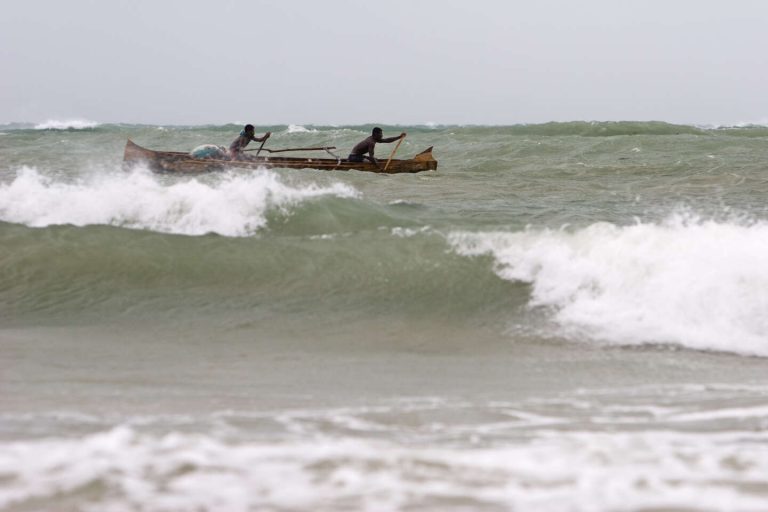New research published in the journal Sustainability explores the role of community-based health systems in delivering healthcare in resource-poor areas during times of crisis. The research suggests that these local systems can be more effective than conventional emergency responses to community health needs in times of crisis − such as during pandemics or extreme weather events.
The research, led by Harro Maat from Wageningen University and supported by Blue Ventures, focused on case studies from Madagascar, Sierra Leone, Uganda, and Ethiopia. The paper describes locally-led responses to public health crises, including the aftermath of cyclone Haruna, which devastated coastal communities in southwest Madagascar in 2013. Blue Ventures supported an emergency response to meet the needs of communities impacted by Haruna.
Despite growing interest in supporting community-based responses to public health challenges, there is little robust evidence on what works best at the local level, or how formal structures can support and sustain these responses. Two key themes emerged from these case studies: the importance of using local knowledge in planning crisis responses, and of engaging trusted local actors in the response.
“This research highlights the importance of harnessing local knowledge and of utilising local networks when partnering with communities on crisis response. It underscores the essential role of trust between communities and the supporting organisation at times of crisis. By supporting communities to develop their own response to crises, we believe we are enabling them to develop greater resilience to future crises.” – Dr. Vik Mohan, co-author and Director of Community Health at Blue Ventures.
These insights are consistent with Blue Ventures’ practical experiences supporting coastal communities in low-income contexts to navigate the public health emergency caused by the COVID-19. In countries such as Madagascar, Blue Ventures has supported community responses to the pandemic led by trusted local leaders and community health workers.
Madagascar is currently facing the worst drought in four decades, pushing the country into what many are referring to as the world’s first famine driven by climate change. There is now an important opportunity to apply lessons learned from the research on community-based services. Harnessing local wisdom and working with community members, local health workers, and technical partners who are trusted by communities and understand local contexts will be fundamental to an effective response to this unprecedented food security emergency.
Read the full research article: Towards sustainable community-based systems for infectious disease and disaster response.
Find out more about Blue Ventures’ work to support community preparedness and strengthen healthcare systems in the face of COVID-19.
Learn how Blue Ventures is going beyond conservation: Responding to community health needs during the COVID-19 pandemic
Explore Blue Ventures’ work in response to cycle Haruna in Madagascar: Building community resilience to climate change: The role of a Population-Health-Environment programme in supporting the community response to cyclone Haruna in Madagascar























